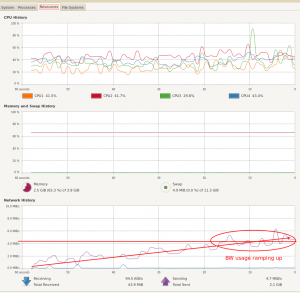 As you know, I have several machines running Linux, and I would like to provide anybody in my family the same environment when using any of them.
As you know, I have several machines running Linux, and I would like to provide anybody in my family the same environment when using any of them.
I already setup a LDAP centralized directory, to manage consistency of the authentication (see LDAP server installation article)
But I would like to find the same files at the same place.
Solution: centralized resources, shared by NFS + automount
Continue reading “Automount usage” »


 I don’t know why, but Ubuntu packages for SIPE keep being defined without Audio/Video support…
I don’t know why, but Ubuntu packages for SIPE keep being defined without Audio/Video support…

